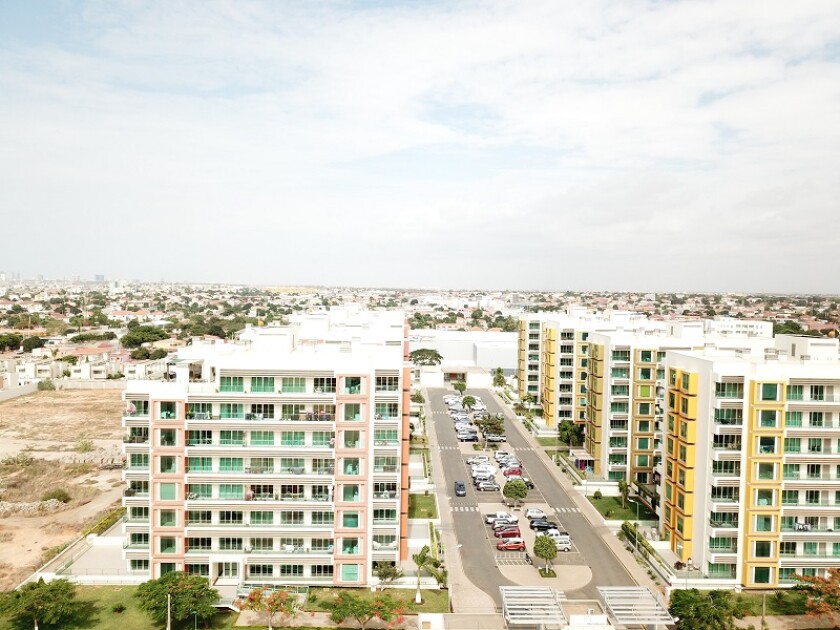Compared with other African countries, Angola has managed to maintain political stability after the end of its 27-year civil war in 2002. Since the new government took office in September 2017, the country has faced several political changes and has become more assertive and shown a more steadfast commitment to compliance and anti-money laundering international best practice. However, the government's key challenge remains solving Angola's economic stagnation.
After the civil war, the country was able to achieve one of the highest economic growth rates in the world, thanks to its oil wealth. It became the second biggest oil producer in Africa and generated the third highest GDP in sub-Saharan Africa. However, in 2015 the economy was severely hit by the drop in oil prices and the fall in oil global demand and, since then, the economic situation has been critical. In fact, cuts to the state budget, currency devaluation and high inflation have slowed down imports and hindered economic growth in the past years.
It is well known that Angola has huge economic potential due to the abundance of important natural resources such as oil, gas, gold and diamonds. However, despite governmental reforms designed to stimulate the economy and create conditions for greater private sector participation in the economy, so far it has been challenging to attract foreign investment and leverage these resources, as well as to diversify the economy into other sectors.
This year is expected to be the fourth consecutive year of recession and the country battles through the worldwide crisis in the oil sector, which is now aggravated by the negative economic impacts of Covid-19. In just the past few weeks, at a time when the drop in oil prices and exports has put additional strain on the economy, the Angolan government has faced additional unique challenges.
Lockdown measures put in place globally to contain the spread of Covid-19 represented an unprecedented shock to global oil demand, pushing oil prices down even further to their lowest historical levels. Oil companies suspended their production and the oil crisis will ultimately only be solved by a pick-up in global oil demand once lockdowns are lifted and the global economy is restarted.
Pandemic measures
To manage the Covid-19 outbreak, by the end of March 2020 the Angolan government had introduced a lockdown on the 28 million people living in the country, declaring the state of emergency for an initial period of 14 days, which has already been extended three times, between March 27 and May 25 2020.
Under Angolan law, the state of emergency can only be declared if a public disaster occurs or threatens to occur. In practical terms, the declaration of a state of emergency may involve the partial suspension of certain rights, freedoms and guarantees, such as a ban on travel or on certain personal or business activities. Presently, the following rights are suspended in full or partially: inviolability of the home; private property; private enterprise; freedom of belief, in its collective dimension; right of residency, circulation and migration; right of assembly and protest; right to inviolability of correspondence and communications; right to strike and other workers' rights; and freedom of worship, namely as regards religious events and gatherings. The authorities are further authorised to request detailed records of telephone calls, other support items and contact details from electronic communication operators, exclusively for purposes of tracing citizens suspected of being infected by, or confirmed cases of, Covid-19.
The lockdown measures implemented by the Angolan government include confinement measures and shelter-in-place orders, the closure of frontiers and the widespread establishment of handwashing stations in informal markets. These stringent measures implemented by the government to prevent the spread of Covid-19 have been deemed necessary and have been commended by the World Health Organisation (WHO). The Angolan response has been informed by an understanding of the magnitude of a pandemic and the need to take proactive steps, drawn from lessons from other countries, especially in Asia.
The government had to make difficult trade-offs by trying to find a proper balance between tackling the disease in a constrained health system and, simultaneously, addressing the negative impact of preventive measures on the economy, employment, incomes and food security of the population.
Additionally, the government also approved immediate measures to alleviate the negative economic and financial effects of the pandemic and to accelerate the process of economic diversification.
In this vein, the government adopted several measures for manufacturing companies that included extending deadlines on reporting obligations in respect of taxes and granting a tax credit to companies in respect of the amount of VAT payable on the imports of goods and raw materials used in the production of the 54 goods of the basic food basket. It also deferred the payment of social security contributions so that they may be paid in instalments and without interest.
The government implemented measures to financially support minimum levels of activity for micro, small and medium-sized companies (MSME) in the manufacturing sector and to remove excessive bureaucracy affecting businesses, for example in the licensing of contracts relating to management, service provision and foreign technical or management assistance and the temporary suspension of all external tax audits by tax authorities.
Other measures were put in place for private individuals and for the protection of family welfare. For example, private sector employers must transfer to employees' salaries the amount of the discount to social security related to the months of April, May and June 2020; water and energy supply companies must not cut off supplies to customers who have difficulties paying their bills during the month of April; and campaigns were set up to distribute the basic food basket together with the provincial governments.
The government also implemented measures to promote the provision of credit to the real economy, while a set of measures were designed to boost the financing of projects of SMEs – with more favourable terms and conditions – for 2020. In addition, the government approved a financial package consisting of different credit lines with a view to help MSMEs in the services sector.
It is also worth mentioning other measures related to the obligations arising from bank loans. The recent regulations enacted by the government foresee that demands, delays and enforcement shall have no effect, by virtue of a delay in complying with obligations which may not be complied with as a result of the state of emergency. Also, bank customers may benefit from a 60-day moratorium to pay the instalments of their bank loans covering capital and interest. Banks are also prevented from modifying the amount of the instalments and must suspend all admonishments, constitution of customers in arrears and enforcement proceedings resulting from the delay in the compliance of the obligations to pay capital and interest, when such payments cannot be made as a result of the impact of the Covid-19 pandemic.
Privatisation and the pandemic
It is important to highlight the recent efforts made by the government to accelerate the privatisation program (Propriv). Propriv seeks to reduce the influence of state-owned companies in the economy and increase, diversify and ensure self-sustainability in terms of expected gains and liquidity for the Angolan National Treasury. The companies to be privatised include state-owned companies and companies in which the state has a direct or indirect holding, with majority or minority positions, in the following sectors:
Mineral resources and petroleum
Telecommunications and IT
Financial sector: banking, insurance and capital market companies
Transportation
Companies in the Special Economic Zone (ZEE)
Tourism and industry (including agribusiness)
Propriv's strategic companies include important telecom and IT companies, such as Unitel, Angola Telecom, Angola Cables and MSTelecom, major banks as Banco BAI, Banco de Comércio e Indústria (Banco BCI) and Banco Económico and insurance companies including Ensa, as well as the Bodiva stock exchange, mineral and oil companies such as Sonangol and Endiama, airline companies like TAAG and Sonair, industrial companies such as Nova Cimangola, Secil, Biocom, Cuca e EKA and construction companies as Mota-Engil Angola, among others. The privatisations will be implemented through open and limited public tenders, capital market offerings (initial public offerings) and auctions of indivisible blocks of shares offered to pre-selected investors (stock auctions) or, as contemplated in the Privatizations Framework Law, a mix of all the above.
Through Presidential Order No. 66/20 of May 5, Banco BCI's privatisation was recently launched and will be carried out under the Stock Exchange Auction regime, addressed to specially qualified candidates. According to a recent government announcement, some interested parties have already been identified, with expressions of interest received from certain domestic and foreign investors, all with experience in African markets. The timetable established for Banco BCI's privatisation is still expected to take place in 2020.
It is not difficult to anticipate what trajectory the Covid-19 outbreak will follow in Angola. The Covid-19 pandemic will undoubtedly depress the economy and the slowdown will trigger revenue declines for small businesses and larger companies operating in the country.
Tiago Marreiros Moreira
Partner, Vieira de Almeida
Lisbon, Portugal
Tel: +351 213 113 485
Tiago Marreiros Moreira joined VdA in 2001. As an executive partner of the corporate advisory and tax group and head of the tax practice, Tiago regularly advises domestic and international companies with regard to tax law, in sectors such as financial, energy, pharmaceutical, communications, real estate and services. He is currently also VdA Legal Partners head of international operations. He represents clients in the financing, acquisition and restructuring of cross-sector national and multinational groups and companies. Tiago plays a key role in the tax definition of transfer pricing policies for multinationals, as well as in the negotiation and settlement of disputes with tax authorities and the implementation of financial operations. Tiago is very active in private wealth, notably advising family offices and domestic and international private clients on the legal and tax structuring of their investments and estates, as well as succession planning.
Vanusa Gomes
Managing associate, ASP – Sociedade de Advogados
Luanda, Angola
Tel: +244 226 430 291
Vanusa Gomes has collaborated with VdA Legal Partners since 2015, integrating ASP Advogados as managing associate in the M&A, banking & finance, corporate & governance, tax, and employment & benefits practice areas, where she has been actively involved in several transactions in Angola. She has advised clients across diverse sectors in transactions including mergers, spin-offs, joint-ventures and group restructurings. She has a particular, and vast, experience in M&A transactions within the TMT and banking & finance sectors. Vanusa has also provided tax assistance to groups and corporations for international and domestic tax optimisation of banking and financial structures, real estate projects and domestic supplies of goods and services.

